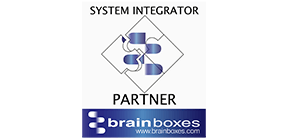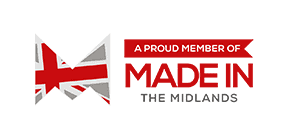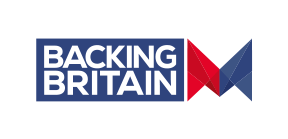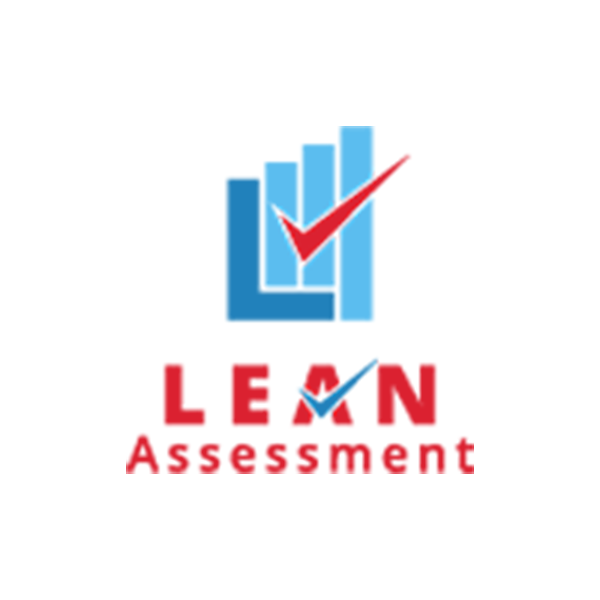Industries lean Manufacturing Application
- By Brett Griffiths
- Lean Technology
- November 17 , 2023
- Share
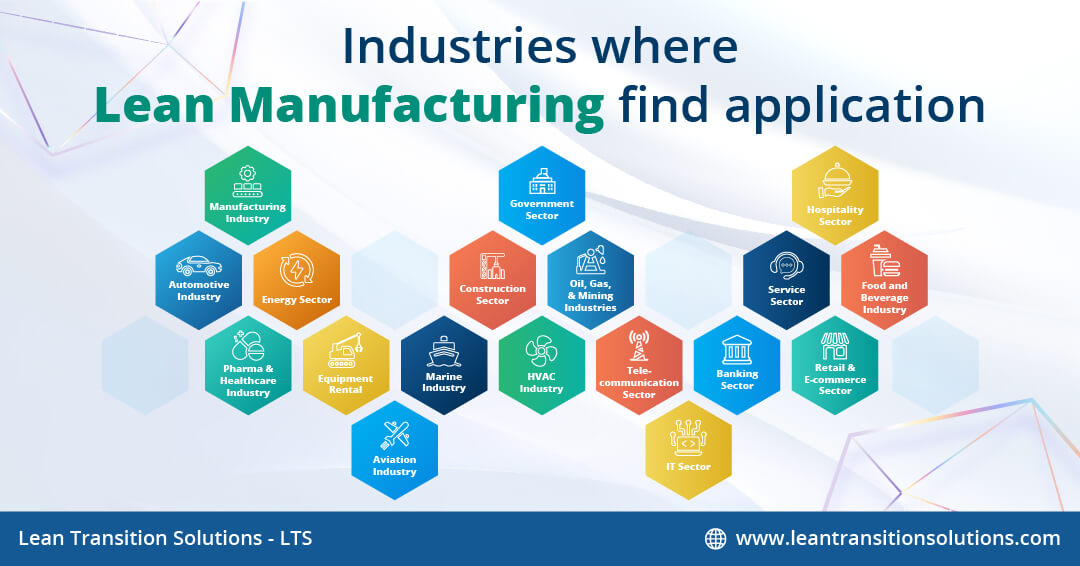
The journey of Lean technology began with the groundbreaking Toyota Production System (TPS), which revolutionised manufacturing practices. Lean management philosophy has proven its versatility, offering valuable insights and benefits across diverse industries. Healthcare, Automotive, Manufacturing, Service sectors and many more have embraced Lean principles to streamline operations, enhance efficiency, and deliver greater value to customers. The adaptability of Lean techniques enhanced its universal appeal, demonstrating that its principles are not confined to a specific sector but rather can be tailored to meet the unique challenges and demands of various industries.
In the world of Lean manufacturing and production, the principles of efficiency, waste reduction, and continuous improvement seamlessly transition into other professional domains. Organisations adopting Lean practices find common ground in their quest of operational excellence. Let's understand the diverse landscape of industries where Lean principles find application, exploring how this proven methodology contributes to success and innovation beyond its manufacturing origins.
Manufacturing Industry
In the Manufacturing and production industry, Lean technology is a cornerstone for optimising processes. Lean techniques such as VSM (Value Stream Mapping) and 5S methodology are frequently employed in manufacturing sectors. Lean manufacturing principles seamlessly align with the goal of delivering high-quality products while minimising costs, making it an indispensable approach in a manufacturing industry.
- Identify and Eliminate waste
- Reduce Lead times
- Enhances Production Efficiency
- Ensure Strategic Alignment
- Improved Quality
- Increased Flexibility
Automotive Industry
The Automotive sector has embraced Lean principles to enhance competitiveness and respond to dynamic market demands. Just-in-Time (JIT) production and Kanban systems are widely employed to minimise inventory levels and maximise production flexibility. Lean tools like Total Productive Maintenance (TPM) ensure that machinery and equipment operate efficiently, reducing downtime and optimising the manufacturing process.
- Deliver Product Quality
- Enhanced Worker Safety
- Increased Customer Satisfaction
- Cost Reduction
- Supply Chain Optimisation
- Increased Innovation Capability
Pharma and Healthcare industry
Lean principles are applied in Healthcare and Pharmaceuticals to improve patient care and optimise operational processes. Lean tools like Kaizen and Standardised Work Procedures help enhance efficiency in hospital workflows and pharmaceutical production. Lean commitment to continuous improvement aligns seamlessly with the emphasis on eliminating errors and improving patient outcomes.
- Enhanced Productivity in Laboratories
- Enhanced Patient Satisfaction
- Ensure GMP ( Good Manufacturing Practices)
- Improved Regulatory Compliance
- Optimised Resource Utilisation
- Risk Mitigation
- Set Automated Quality Control Alerts
Energy Sector
Lean thinking ensures efficient operations and resource utilisation in the Energy sector. Value Stream Mapping identifies and eliminates bottlenecks in energy production processes. Lean tools such as 5 Whys and Fishbone Diagrams are employed to investigate and address inefficiencies, promoting reliability and sustainability in energy production.
- Optimised Maintenance Procedures
- Cost-effective Sustainability Practices
- Enhanced Collaboration Across Departments
- Continuous Improvement in Energy Efficiency
- Predictive Analytics for Equipment Performance
Equipment Rental industry
Lean techniques are increasingly applied in Plant hire or rental services to optimise equipment utilisation and streamline rental processes. Visual management boards, such as Kanban boards, facilitate efficient tracking and allocation of equipment. Lean principles help rental businesses minimise idle time and maximise the return on their equipment investments.
- Improved Equipment Rental Services
- Adaptability to Market Changes
- Track Equipment Usage, Availability and Location
- Enhanced Maintenance Practices
Aviation Industry
Manufacturing processes and maintenance operations in the Aviation industry can be improved using lean principles. Just as in manufacturing, Lean tools like 5S and Value Stream Mapping are applied to enhance efficiency in the aviation industry. Lean methodologies contribute to reducing lead times, ensuring compliance, and maintaining high safety standards in aircraft production and maintenance. CMMS is regarded as an efficient tool in maintenance practices in industries around the globe.
- Improved Workflow Visibility
- Enhanced Aircraft Safety
- Increased Compliance
- Optimised Resource Utilisation
- Streamlined Communication among Aviation Maintenance Teams
Marine Industry
In the Marine vessels, lean principles enhance shipbuilding processes, maintenance, and overall efficiency. Visual management tools and process mapping help optimise workflows. Lean techniques ensure that shipbuilding projects are completed with minimal waste and maximum value, contributing to the industry's competitiveness and sustainability.
- Enhanced Crew Training and Performance
- Optimised Inventory Management
- Reduced Lead Times
- Improved Supplier Relationships
- Enhanced Safety
Construction Sector
The Construction industry improves project management and site operations by applying Lean principles. Last Planner System (LPS) and scheduling tools like T cards help coordinate project scheduling. Lean methodologies in construction focus on reducing delays, optimising resource utilisation and improving collaboration among various stakeholders.
- Improved Resource Planning
- Enhanced Quality Assurance
- Cost Predictability
- Reduced Rework
- Enhanced Project Visibility
- Client Satisfaction
HVAC Industry (Heating, Ventilation, and Air Conditioning)
HVAC operations are enhanced through the application of lean technology. Lean principles help optimise the installation and maintenance processes through Value Stream Mapping and waste reduction. Lean tools like 5S (Sort, Set in order, Shine, Standardise, Sustain) can be employed to organise workspaces, while Kanban systems aid in managing inventory and scheduling maintenance tasks effectively.
- Adaptability to Technological Advances
- Energy Efficiency
- Enhanced Safety
- Workforce Empowerment
- Compliance with Regulations
Oil, Gas, and Mining Industries
In the Extractive industries, Lean techniques contribute to operational excellence and safety. Streamlining supply chains, implementing visual management tools like Kamishibai, Kanban and Huddle boards, and utilising Total Productive Maintenance (TPM) principles help minimise downtime and enhance overall productivity. Implementing Lean Six Sigma, a combination of Lean and Six Sigma methodologies, is particularly effective in reducing defects and improving process efficiency.
- Reduced Energy Consumption
- Enhanced Compliance
- Improved Equipment Reliability
- Enhanced Collaboration
- Risk Mitigation
- Resource Optimisation
Telecommunication Sector
Lean principles are instrumental in the fast-paced world of Cable and Telecommunication. Value Stream Mapping assists in optimising the service delivery process, while tools like A3 problem-solving and Kaizen events foster continuous improvement. Lean's focus on customer value ensures that telecommunication services are rapid and meet consumers' evolving needs.
- Streamlined Installation Processes
- Data Security and Compliance
- Quick Response to Technical Issues
- Enhanced Network Reliability
- Efficient Resource Utilisation
IT Sector
In the rapidly evolving landscape of the IT sector, Lean technology has emerged as a catalyst for operational excellence. IT companies aim to maximise efficiency, deliver value, and enhance customer satisfaction through lean thinking. Lean manufacturing tools like Kanban boards find applications in software development processes. With its visual representation of work stages and continuous flow, Kanban helps manage tasks and reduce unnecessary delays. Moreover, implementing Lean technology in the IT sector extends beyond software development. Balanced Scorecard (BSC) is a valuable Lean tool in the IT sector, providing a comprehensive view of end-to-end processes and aiding in identifying areas for improvement.
- Accountability within IT projects
- Ensure Strategic Alignment
- Increased Adaptability
- Improved Time Management
- Enhanced Collaboration
Banking Sector
Lean technology finds application in the Banking sector by optimising various processes, from customer service to back-office operations. Value Stream Mapping can identify and eliminate redundancies in transaction processes, while tools like Lean Kaizen drive continuous improvement in Banking. Implementing Lean Six Sigma methodologies in the banking sector enhances accuracy in financial processes and reduces errors.
- Increased Operational Efficiency
- Enhanced Customer Experience
- Risk Mitigation
- Enhanced Employee Productivity
- Improved Compliance
Service Sector
Across the broader service sector and consulting services, Lean principles can deliver significant improvement. Shop floor observation practices, such as Gemba walks (on-site visits to understand operations), contribute to identifying areas for enhancement. Lean tools and techniques like Poka-Yoke (error prevention) and Standardised Work Procedures ensure consistent, high-quality service delivery.
- Faster Service Delivery
- Streamlined Processes
- Reduced Service Errors
- Increased Operational Transparency
- Enhanced Customer Satisfaction
Retail and E-commerce Sector
In the fast-paced world of Retail and e-commerce, Lean principles play a prominent role in optimising Supply Chain Management, reducing lead times, and enhancing customer satisfaction. Lean management tools, such as Kanban, can streamline inventory processes, minimising overstock or stockouts in the retail industry. Also, Just-In-Time (JIT) production principles find resonance in managing inventory levels for the industry efficiently. Additionally, Value Stream Mapping (VSM) aids in visualising and improving the end-to-end processes, ensuring a seamless and efficient customer experience.
- Enhanced Forecasting Accuracy
- Reduced Stock Holding Costs
- Minimised Product Obsolescence
- Improved Order Fulfilment
- Improved Data Visibility
- Enhanced Collaboration with Suppliers
Food and Beverage Industry
In the Food and beverage industry, Lean techniques improve production efficiency, reduce waste, and maintain high-quality standards. As in Lean manufacturing, the 5S methodology (Sort, Set in order, Shine, Standardise, Sustain) can be applied to organise workspaces and enhance cleanliness and hygiene. Furthermore, Continuous improvement principles help optimise production processes, ensuring a steady output without unnecessary delays. The application of Lean technology here aligns with the industry's need for flexibility in responding to changing consumer preferences.
- Minimised Risk of Contamination
- Increased Responsiveness to Market Demand
- Improved Supplier Relationships
- Sustainability Practices
- Enhanced Workforce Collaboration
Hospitality Sector
Lean principles find application in the hospitality industry by enhancing guest experiences and operational efficiency. Value Stream Mapping can analyse and optimise processes, from reservation management to housekeeping. Lean tools such as Andon systems, which signal when there's an issue, can be adapted to ensure quick responses to guest requests or service disruptions. Continuous improvement initiatives foster a culture of providing superior service while minimising waste and unnecessary costs.
- Increased Guest Satisfaction
- Enhanced Service Responsiveness
- Improved Reservation Management
- Consistent Quality Standards
- Staff Empowerment
Government Sector
Even in the public sector, Lean technology has proven instrumental in improving processes and services. Lean principles help government agencies streamline bureaucratic procedures, reduce delays, and enhance citizen satisfaction. Kaizen events, a Lean tool for rapid improvement, can address specific challenges and drive continuous improvement. Lean's emphasis on data-driven decision-making aligns with the government's increasing reliance on analytics to optimise resource allocation and service delivery.
- Enhance Cross-Departmental Collaboration
- Enhanced Service Quality
- Improved Citizen Engagement
The versatility of Lean principles highlights its potential as a guiding compass for businesses navigating the complexities of the modern business world. Lean principles find widespread application across industries, as lean tools can enhance efficiency, reduce waste, & foster continuous improvement efforts.
The journey towards Lean excellence is a collective effort that promises streamlined operations and a commitment to deliver value to customers by reducing waste and contributing to a more sustainable future. The true essence of embracing Lean lies in surviving today's challenges and thriving in tomorrow's opportunities, making it an indispensable partner for sustained success and growth.
Start Free Trial
LEAN TRANSITION SOLUTIONS
The Old Vicarage, Pershore Road, Upton Snodsbury, Worcester, Worcestershire, WR7 4NR, United Kingdom.
Lean Transition Solution
-
Lean Industry 4.0 Solutions
- TITAN:Computerised Maintenance Management System
- Data Point:Computerised Balanced Scorecard
- Janus: Automated Shop-floor Data Capture System
- T-Card: Integrated Production Planning and Plant Level Execution System
- JDI: Maintenance Automation App
- Maximus: Integrated ERP System
- e-Contractor: Integrated In-house Contractor Management System
- Q-Point: Integrated Quality Management System
- Safety-Point: Integrated Health and Safety Management System
- Lean Assessment: Lean Audit and Assessment System
- Saisho: Lean 5S Audit and Assessment App
- Emergency Response App: To Manage Emergency Situations
-
Leadership 4.0 Solutions
- Your Career Academy(YCA): Learning and Development System
- YCA e-Learning : Management System
- MentorYou(MU): Mentoring App
- Leadership 4.0 : Leadership Transformation Program
- Lean Manufacturing Workshop
- Lean Manufacturing Consulting
- ILM Accredited Green Belt Training and Certification Program
- ILM Accredited Black Belt Training and Certification Program
- Software Development Service
- Resources
- Company
- Contact
